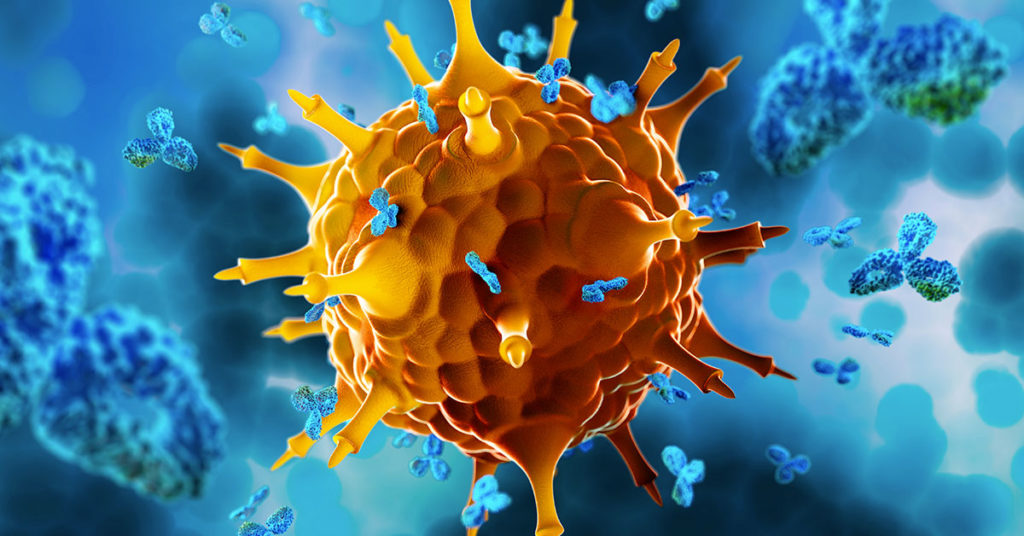Key points
-
Immune system cells can remember pathogens’ unique markings to fight infections more quickly.
-
Antibodies are proteins that attach to pathogens.
-
Autoimmune diseases occur when the system overreacts to the body’s own tissues and cells.
The immune system is a defense mechanism as complex as it is powerful. Its primary function is to defend the body from pathogens, which are disease-causing organisms such as viruses and bacteria. The team that works together to fulfill this function are the tissues, cells, and proteins that comprise it.
How does it work?
The first thing the immune system must do to fight infections is identify the pathogens that attack it. These have molecules called antigens on their surface that provide a unique mark, allowing immune system cells to recognize different agents and distinguish pathogens from the body’s own cells and tissues.
When a pathogen enters the body, the immune system can react in two ways:
- Innate immune response: it is the fastest reaction. Innate immune cells recognize certain molecules found in many pathogens. These also react to signaling molecules released by the body in response to infection. Through these actions, the innate immune cells rapidly begin to fight infection. This response causes inflammation.
- Adaptive immune response: it is the slowest reaction but has the greatest ability to target specific pathogens. There are two main types of cells involved in this response: T cells and B cells. Some T cells kill pathogens and infected cells. Other T cells help control the adaptive immune response. The main function of B cells is to produce antibodies against specific antigens.
What are antibodies?
Also known as immunoglobulins, they are proteins that adhere to pathogens. This sends a signal to immune cells to destroy the organisms causing the infection.
It takes time for T and B cells to respond to new antigens when a pathogen causes an infection. Once exposed to the pathogen, these cells develop a memory of the pathogen to be ready for the next infection. As part of the adaptive immune response, some T and B cells transform into memory cells. The latter remain, in most cases, in the lymph nodes and the spleen, and “remember” particular antigens. If a person gets an infection from the same pathogen again, these cells can quickly begin to fight the infection.
Immune system disorders
Immunodeficiency occurs when the body does not have enough of certain types of immune cells or when they do not work properly. If this happens, a person is more vulnerable to infections. This can be primary, which is related to genetics, or secondary, due to other conditions.
Secondary immunodeficiency can be caused by:
- Medications: corticosteroids, chemotherapy drugs, or others that suppress the immune system.
- Medical conditions: diabetes, kidney disease, liver disease.
- Infections: HIV, which can cause AIDS.
- Other conditions: malnutrition, surgery, trauma, age extremes (newborn and elderly).
Autoimmune diseases occur when the immune system overreacts to the body’s own tissues and cells. Lupus, multiple sclerosis, rheumatoid arthritis, and celiac disease are all types of autoimmune diseases.


